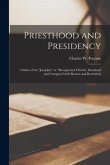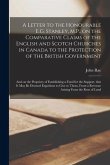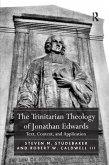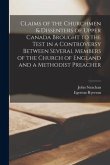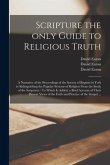Carl Trueman analyses the theology of the great Puritan theologian, John Owen, paying particular attention to his vigorous trinitarianism. To understand Owen, we need to see him as a seventeenth-century representative of the Western trinitarian and anti-Pelagian tradition. Trueman demonstrates how Owen used the theological insights of patristic, medieval, and Reformation theologians to meet the challenges posed to Reformed Orthodoxy by his contemporaries. A picture emerges of a theologian whose thought represented a critical reappropriation of aspects of the Western tradition for the purpose of developing a systematic restatement of Reformed theology capable of withstanding the assaults of both the subtly heterodox and the openly heretical. Table of Contents: 1. Owen in Context 2. The Principles of Theology 3. The Doctrine of God 4. The Person and Work of Christ 5. The Nature of Satisfaction 6. The Man Who Wasn't There Appendix One: The Role of Aristotelian Teleology in Owen's Doctrine of Atonement Appendix Two: Owen, Baxter, and the Threefold Office
Bitte wählen Sie Ihr Anliegen aus.
Rechnungen
Retourenschein anfordern
Bestellstatus
Storno

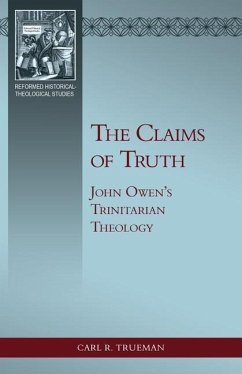
![A Needed Exposition, or, The Claims and Allegations of the Canada Episcopals Calmly Considered [microform] A Needed Exposition, or, The Claims and Allegations of the Canada Episcopals Calmly Considered [microform]](https://bilder.buecher.de/produkte/65/65589/65589679m.jpg)
![The Methodist Ministry Further Defended Against the Exclusive Claims of High Episcopalians [microform]: in a Series of Letters Addressed to the Rev. C The Methodist Ministry Further Defended Against the Exclusive Claims of High Episcopalians [microform]: in a Series of Letters Addressed to the Rev. C](https://bilder.buecher.de/produkte/66/66127/66127216m.jpg)
